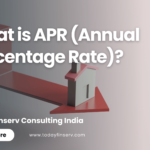A loan default occurs when a borrower fails to repay a loan as per the agreed terms with the lender. Missing multiple EMIs or not paying the due amount within the grace period can lead to default, impacting credit scores and financial stability.
At Today Finserv Consulting India, we help borrowers understand loan defaults, their consequences, and ways to prevent or resolve them efficiently.
How Does a Loan Default Happen?
Loan defaults can happen due to various reasons, including:
1. Missed or Late Payments
Skipping EMI payments or delaying them beyond the due date can trigger a default.
2. Financial Instability
Job loss, medical emergencies, or business losses can make repayment difficult.
3. High Debt Burden
Taking multiple loans without proper repayment capacity increases default risks.
4. Lack of Communication with Lender
Ignoring lender notices or not negotiating revised terms worsens the situation.
Consequences of Loan Default
Defaulting on a loan has serious repercussions:
1. Credit Score Damage
A default severely lowers your CIBIL/credit score, making future loans harder to secure.
2. Legal Action by Lender
Banks/NBFCs may file a lawsuit or involve recovery agents to reclaim dues.
3. Asset Seizure (for Secured Loans)
Collateral like property or vehicles can be confiscated if the loan is secured.
4. Higher Interest & Penalties
Late fees, penalty charges, and increased interest rates add to the financial burden.
How to Avoid or Resolve a Loan Default?
1. Contact Your Lender Immediately
Discuss repayment options like restructuring, EMI extension, or settlement.
2. Opt for Debt Consolidation
Combine multiple loans into one with lower EMIs for easier repayment.
3. Seek Professional Help
Today Finserv offers loan default solutions, including negotiation and legal advice.
4. Maintain an Emergency Fund
Save in advance to handle unexpected financial setbacks.


